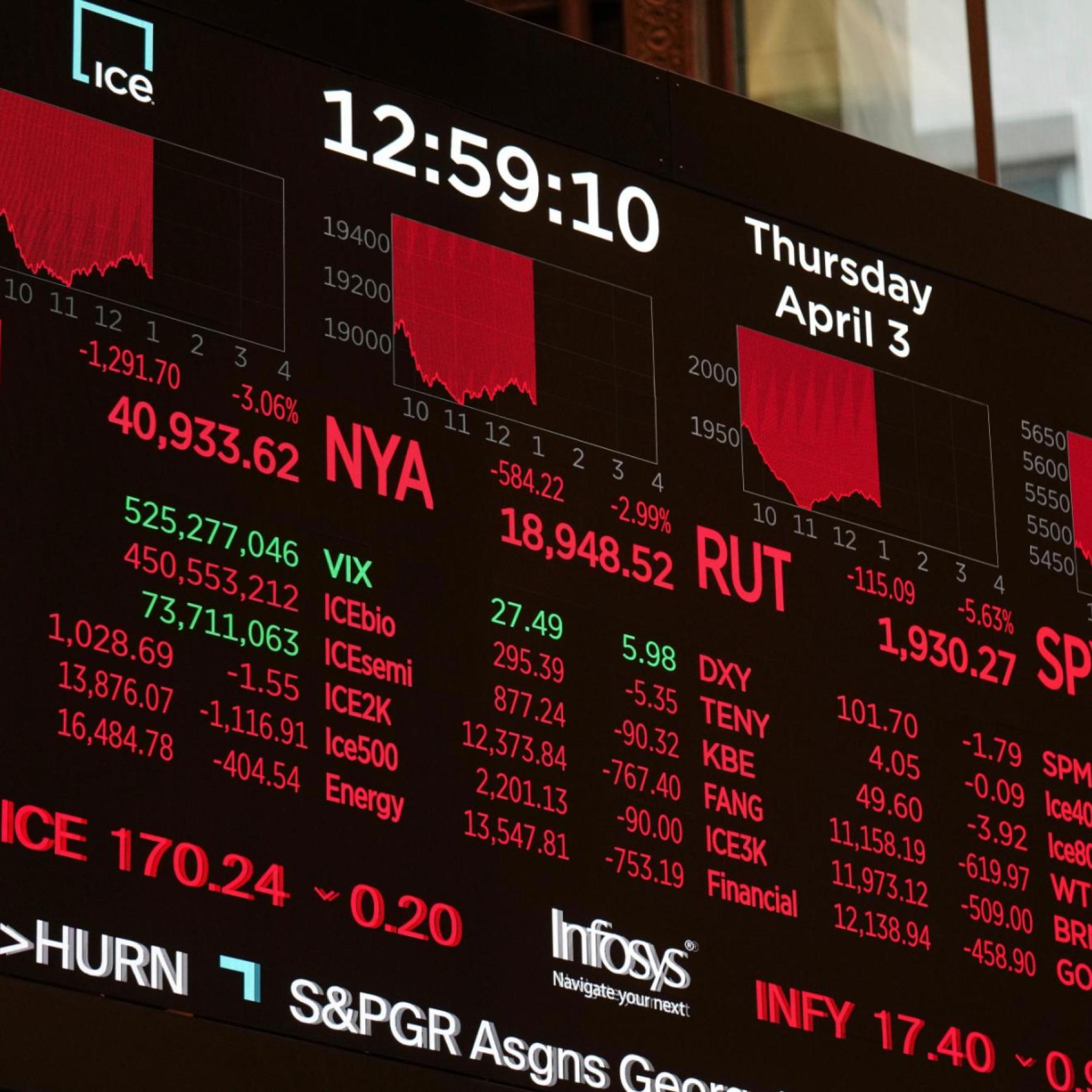Dow’s 2000-Point Drop: How China’s Retaliation Affects You.
China will impose a 34% tariff on American goods. Oil declines as the Nasdaq enters bear market territory.
US stock
Wall Street plummeted Friday due to a dramatic increase in the intensity of the trade war, and the Nasdaq entered a bear market, marking a 20% drop from its peak.
China’s move to impose a 34% tax on all U.S. imports next Thursday, following the implementation of President Trump’s duties, shook markets partly because it further dashed expectations that a global agreement could be reached quickly.
Fed Chair Jerome Powell further damaged optimism by stating that larger-than-expected tariff hikes were more likely to force the U.S. economy to experience a period of higher prices and slower growth than seems feasible a few weeks ago.
The Dow Jones Industrial Average sank 2231 points, the S&P 500 fell 6%, and the Nasdaq fell 5.8%. With 14 S&P 500 equities increasing for the day and 28 falling by 10% or more, the devastation was extensive. The two-day tariff crisis caused a record $6.6 trillion in market-wide losses.
Investors are realizing the dire consequences of the deadlock, as evidenced by the wave of sales that occurred late this week. The business community was surprised by the severity and depth of the charges that were unveiled late Wednesday. The policies’ potential to lower consumer income and impede economic growth could be exacerbated by retaliation.
Tariff Worries Upset Wall Street: Key Updates
On Friday morning, investors grappled with concerns over tariffs while simultaneously processing new data that revealed higher-than-anticipated job growth in March. According to figures issued Friday by the Bureau of Labor Statistics, the US economy added 228,000 jobs in March, a substantial rise over the revised gains of 117,000 in February.
Even if job growth exceeded forecasts, market mood is still influenced by tariff anxiety.
Chris Zaccarelli, chief investment officer at Northlight Asset Management, stated, “Unfortunately, the market is no longer focused on the jobs market and is squarely focused on tariffs and trade wars as the US plays chicken with the rest of the world, potentially beginning a downward spiral into a worldwide recession.”
Trade War Escalates: China Retaliates Against US Tariffs.
The world’s two biggest economies have been engaged in a trade battle for years, and on April 10, China declared that it would impose sweeping 34% tariffs on all US exports. But after Trump was elected president for the second time in January, the tit-for-tat tariff escalation really got going.
Trump increased the duty to 20% in March after imposing an additional 10% in February on all Chinese imports into the US. Trump declared that tariffs on China would increase to 54% on Wednesday. In addition, he and previous President Joe Biden had already imposed import duties on the nation. Therefore, beginning on April 9, the effective tariff rate that the United States levies on Chinese goods will be significantly higher than 54%.
Decoding Trade: Will it be Negotiations or Tariffs? Find Out Here.
On Thursday, Trump downplayed the sharp stock market drops, claiming that they were “to be expected” and that the economy was in a “transition period.” The economy is a “sick patient,” he said.
On Friday, the markets will have more to process. Following Trump’s tariff decision, Jerome Powell, the chair of the Federal Reserve, will surely be questioned about the economy and markets during his conversation later Friday morning.














Post Comment